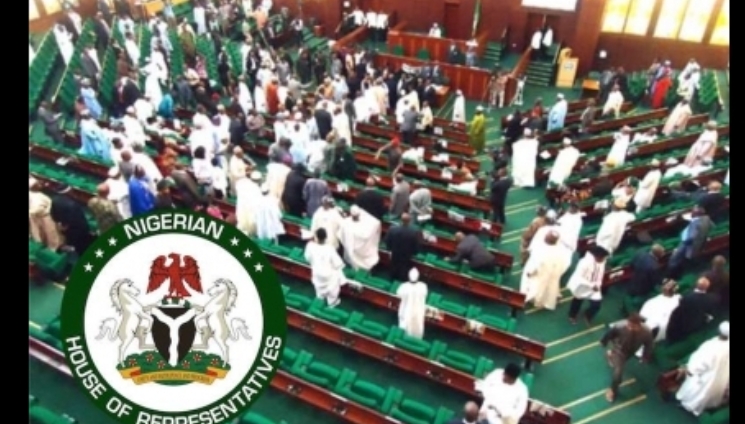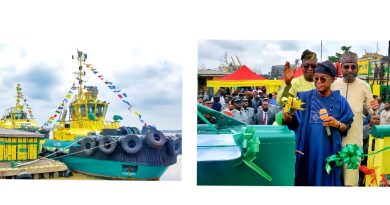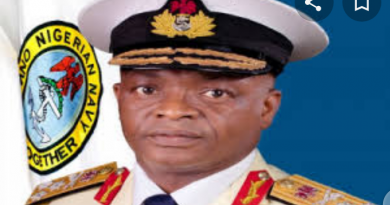Proposed Nigerian Marine Corps Bill, duplication of functions-NIMASA, Police, NSC, Others.
State Correspondent
The Nigerian Maritime Administration and Safety Agency, NIMASA has referred to the proposed Nigerian Marine Corps Bill, as a duplication of functions already assigned to NIMASA and other Federal Agencies in the country, especially as it regards to maritime security already managed under the NIMASA Act 2007.
The Agency noted that establishing the Nigerian Marine Corps conflicts with the Federal Government’s vision of reducing costs of governance, as demonstrated in the Oronsaye Report’s recommendations for restructuring agencies.
Speaking at a Public Hearing organised by the House Committee on Navy at the Green Chamber on Monday in Abuja, the Director General of NIMASA, Dr. Dayo Mobereola, said that introducing a Marine Corps as an independent branch under the proposed bill would effectively alter the country’s established security architecture and contravene the constitution.
Dr. Mobereola, who was represented at the public hearing by Mrs. Moji Jimoh, Head, NIMASA Abuja Zonal Office, said the bill has negative economic impacts, adding that proposed levies, such as a 1% maritime security levy on businesses, may increase operational costs and taxation burdens, which will go a long way to hinder ease of doing business in the Nigerian maritime industry.
The bill in question, titled “Bill for an Act to provide for the establishment of the Nigerian Coast Guard” has passed its second reading in the Senate of the Federal Republic of Nigeria and has been referred to the Senate Committee on Marine Transport for further legislative action.
The DG pointed out that the propose Bill lack clear objectives, asserting that its objectives are ‘vague and overlap’ with NIMASA’s existing mandate, raising questions about its necessity and effectiveness.
According to the Director General, “The Bill undermines efforts to streamline government agencies and improve efficiency, contradicting the administration’s “Renewed Hope Agenda.”
“The Bill replicates the environmental monitoring and pollution prevention roles already performed by NIMASA and NOSDRA, causing duplication of responsibilities.” he said.
NIMASA, further argued that the proposed Marine Corps bill is unnecessary and recommends leveraging existing structures like the Deep Blue Project and partnerships with other agencies to strengthen maritime security.
The Executive Director, Opialu Fabian, Centre for Rights and Advocacy in Africa Network, CHRAAN, said the establishment of a Marine Guard would obviously necessitate a substantial strain in financial commitment on Nigeria financial budget.
He observed that this additional expenditure would divert essential resources away from the optimal functioning of the existing Nigerian Navy Act, which could effectively ensure maritime security within Nigerian waters as a well-equipped force.
The representative of the Inspector General of Police, IGP, Staff Officer, Marine Section of the Nigeria Police Force, NPF, SP Nordom Vangjen, stated that the proposed Nigerian Marine Corps, while well-intentioned, has the potential to create more problems than it can solve.
He said the existing structures should be streamline, adding that this will foster inter-agency cooperation, whereby Nigeria can enhance its maritime security capabilities without incurring unnecessary costs or creating additional bureaucratic hurdles.
The Deputy Spokesperson, House of Representatives, Hon. Philip Agbese, on behalf of the member of the committee, said the bill proposing the establishment of the Nigerian Marine Corps should be totally and categorically defeated, and urged its sponsors to withdraw it.
“This course of action will prevent resource misallocation, avert operational ambiguities, and ultimately preserve Nigeria’s commitment to a streamlined, cost-effective, and coherent maritime security strategy.
“We state unequivocally that the establishment of a Nigerian Marine Corps neither necessary nor beneficial to Nigeria’s maritime interests. Instead, this proposal would only drain resources, duplicate existing efforts, and lead to operational inefficiencies that could weaken the nation’s maritime security posture.” he said.
Executive Summary of Nigerian Maritime Administration and Safety Agency NIMASA position on the proposed Nigerian Marine Corps Bill, 2023: The Agency is of the opinion that the proposed bill will;
1. Result to a duplication of Functions: The proposed Nigerian Marine Corps Bill duplicates functions already assigned to NIMASA and other federal agencies, particularly regarding maritime security, which is already managed under the NIMASA Act 2007.
2. Impact on Cost of Governance: Establishing the Nigerian Marine Corps conflicts with the federal government’s vision of reducing governance costs, as demonstrated in the Oronsaye Report’s recommendations for restructuring agencies.
3. Success of Existing Frameworks: NIMASA’s Integrated National Security and Waterways Protection Infrastructure (Deep Blue Project) has successfully improved maritime security since its launch in June 2021, reducing the need for a new agency.
4. Existing Partnerships: NIMASA already collaborates with the Nigerian Navy through the Maritime Guard Command, which fulfills maritime security responsibilities under international conventions like SOLAS, ISPS, and MARPOL.
5. Legislative Redundancy: Most provisions in the Nigerian Marine Corps Bill mirror the NIMASA Act, including functions like maritime security, pollution prevention, ship detention, and levies, highlighting unnecessary legislative overlap.
6. Negative Economic Impact: Proposed levies, such as a 1% maritime security levy on businesses, may increase operational costs and taxation burdens, hindering ease of doing business in the Nigerian maritime industry.
7. Lack of Clear Objectives: The Marine Corps Bill’s objectives are vague and overlap with NIMASA’s existing mandate, raising questions about its necessity and effectiveness.
8. Contradiction to Current Policies: The Bill undermines efforts to streamline government agencies and improve efficiency, contradicting the administration’s “Renewed Hope Agenda.”
9. Environmental Oversight Overlap: The Bill replicates the environmental monitoring and pollution prevention roles already performed by NIMASA and NOSDRA, causing duplication of responsibilities.
10. Recommendations Against the Bill: NIMASA argues that the proposed Marine Corps is unnecessary and recommends leveraging existing structures like the Deep Blue Project and partnerships with other agencies to strengthen maritime security.
Meanwhile, No fewer than 66 members of the House of Representatives have kicked against the move to establish the Nigerian Marine Corps. The Nigerian Maritime
(Ideal Post)




